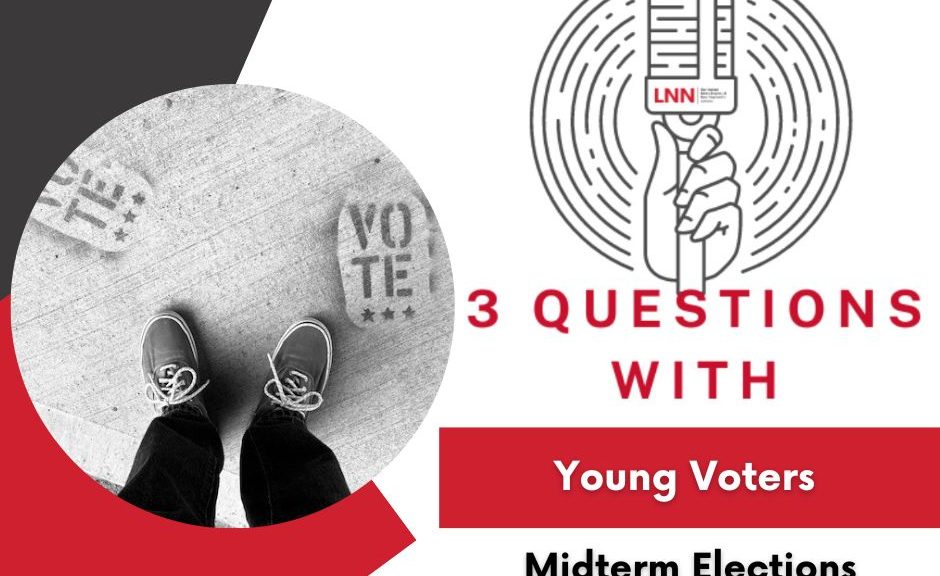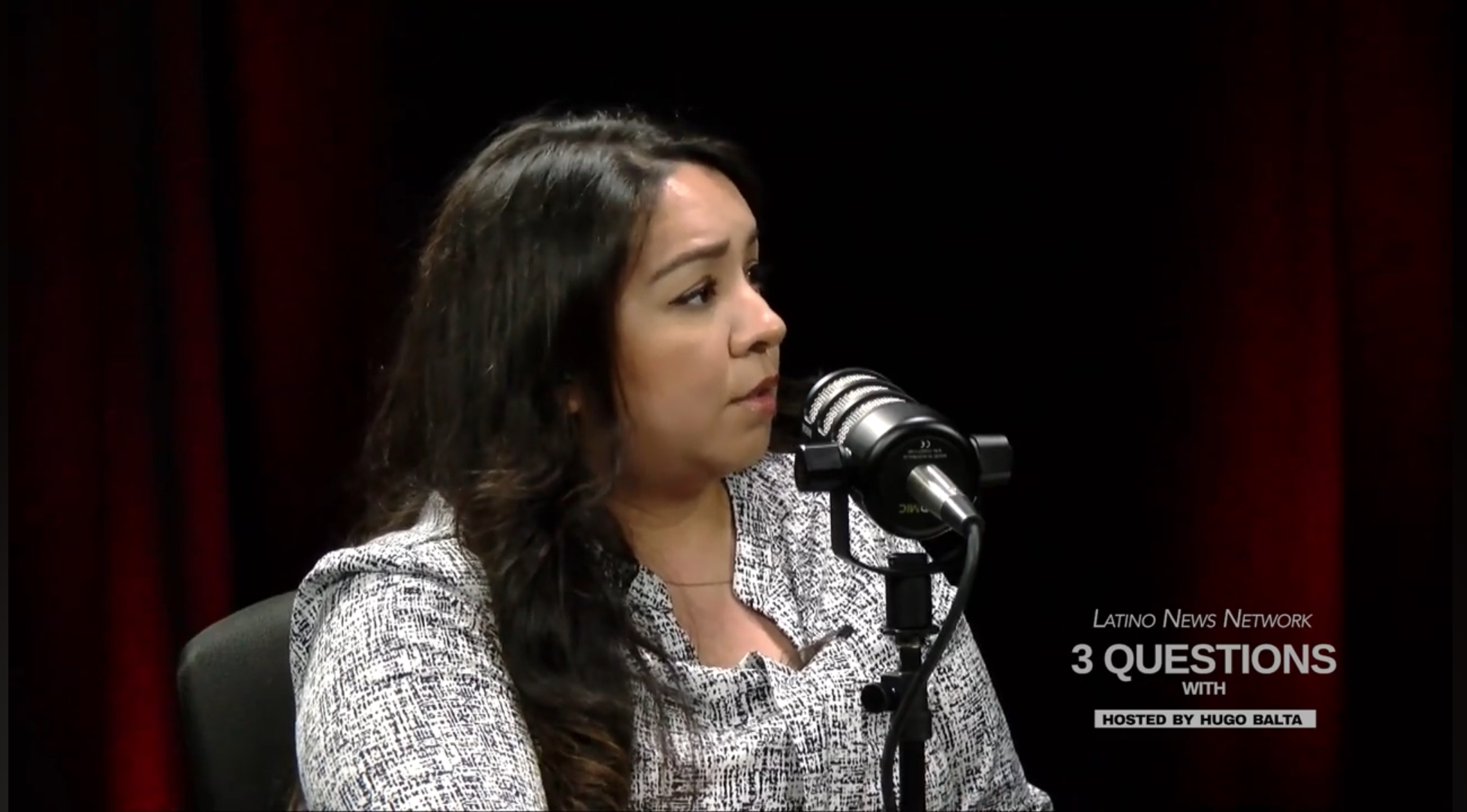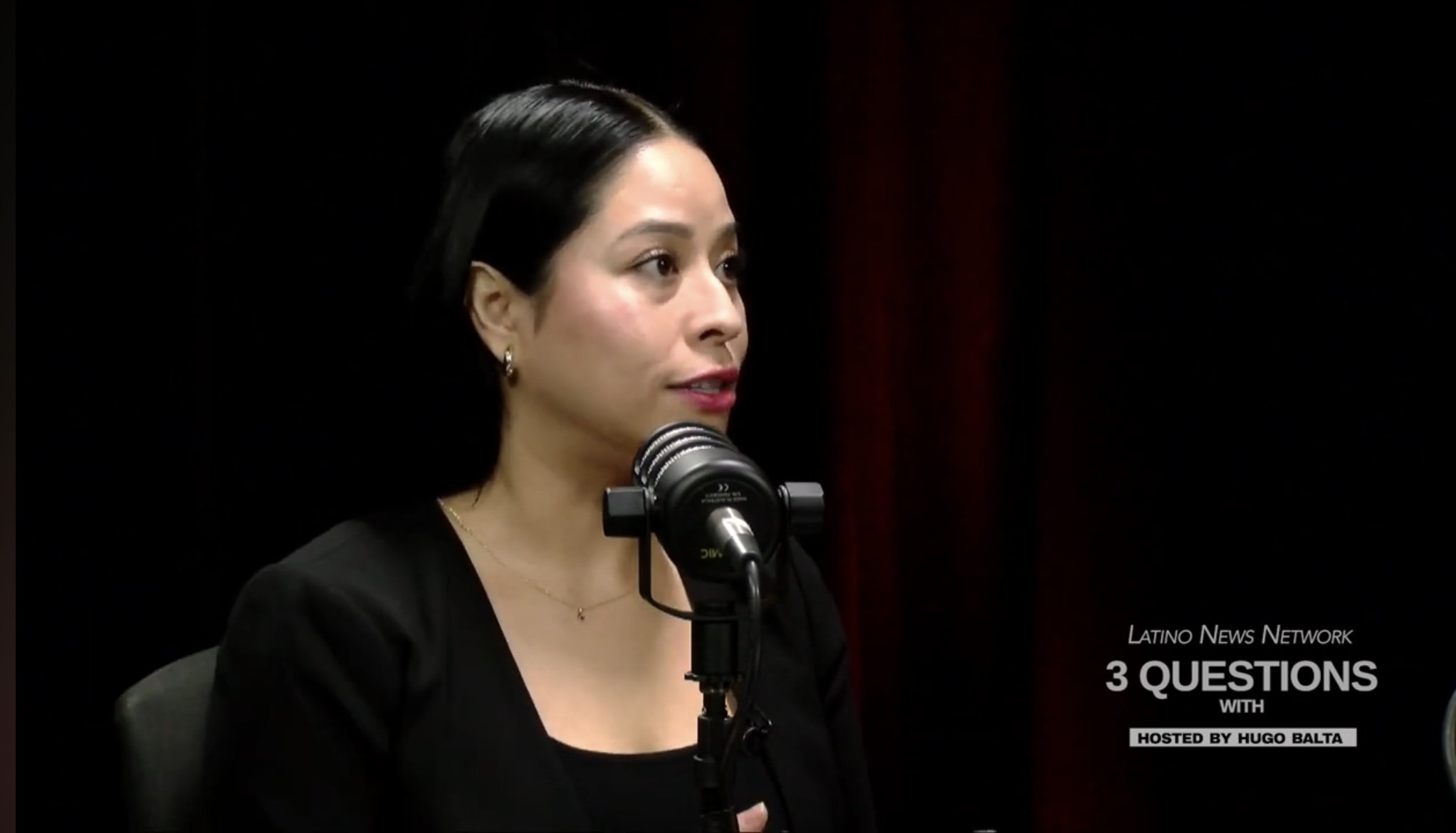Voting in the United States can often be an inaccessible process preventing eligible voters, particularly in marginalized communities, from casting their ballot. This is especially true for Hispanic Latinos. Many of them are new to the electoral process, either because they just came of age or in the case of foreign-born members of the group – they just became naturalized citizens.
Nationally, college students voted at nearly the same rate as all adults in the 2020 general election — 66 percent to the national average of 67 percent.
Still, both major political parties favor older Americans as they tend to outperform young people at the polls; leaving many young people feeling ignored, disconnected, and uninterested.
Giana Aguilar-Valencia, a journalism student at DePaul University, and also an Hortencia Zavala Foundation fellow in the Journalism Camp: Covering Race, ethnicity, and culture – hosted a special edition of the Latino News Network podcast, “3 Questions With…”
The episode was a roundtable discussion about youth voting at the midterm elections, with Sara Cabral, a 21-year-old, Communications Student at DePaul University and Dylan Duncan, also 21-years-old and a Film Student at Columbia College.
“(Politics) is very divisive,” said Duncan about campaign narratives. “It’s very left, right, cut and dry. (Political Parties) should show the diversity of opinions…and go to communities that are underserved,” he continued about the importance of candidates meeting voters where they live.
“Sometimes we feel that we are really not represented,” said Cabral. “A lot of politicians are older…see the world in a different way,” she said about the disconnect between candidates running for office and young voters’ interests.
There are high expectations for young voters to get to the polls this year. According to CIRCLE, the Center for Information and Research on Civic Learning & Engagement at Tufts University’s Tisch College, voter turnout in Illinois among young adults ages 18 to 29 increased from 42percent in the 2016 election to 46percent in the 2020 election.
Publisher’s Notes: Part of the Latino News Network’s mission is to mentor young journalists, providing them real work experience. LNN partners with the Hortencia Zavala Foundation to that end.
IL Latino News, and sister markets under the Latino News Network (LNN), have put together voter informational guides with the help of our partner Be The Ones, to assist voters make informed decisions not only at the polls, but in their engagement with democracy going forward.
Collaboration and inclusion are best practices LNN adopted from the Democracy SOS fellowship. LNN is one of 20 U.S.-based newsrooms elected to participate in the Hearken and the Solutions Journalism Network (SJN) fellowship, committed to building understanding, trust, and engagement.




